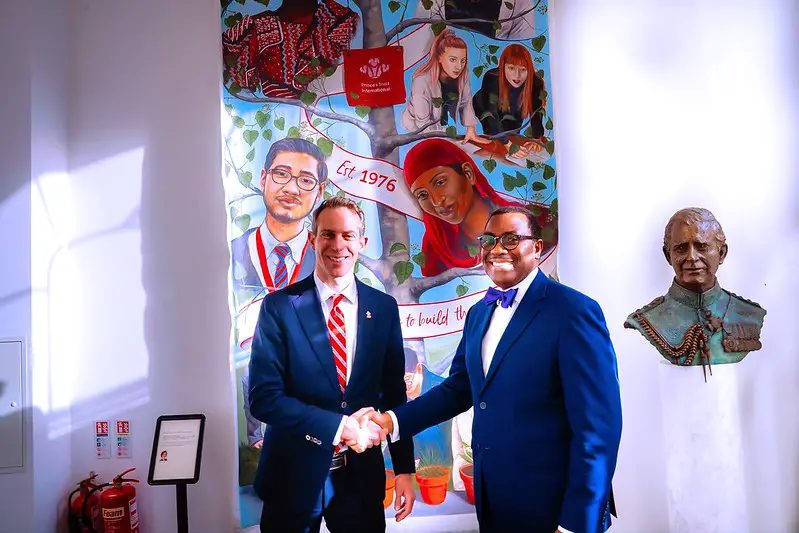- The AfDB and Prince Trust International have signed a deal to address youth unemployment while scaling up human capital and entrepreneurship.
- The MOU commits both institutions to collaborate to identify and develop partnership opportunities to mainstream employability skills for technical and vocational education and training (TVET) projects funded by the Bank.
- The Prince’s Trust will participate in preparing, designing, implementing and monitoring TVET and skills development projects.
Youth unemployment, human capital, and entrepreneurship opportunities in the continent are set to be addressed through an agreement signed by the African Development Bank (AfDB) and Prince’s Trust International.
The MOU commits both institutions to work together to identify and develop partnership opportunities to mainstream employability skills for technical and vocational education and training (TVET) projects funded by the Bank in countries of common interest.
Skills development to tackle youth unemployment
The Prince’s Trust will participate in preparing, designing, implementing and monitoring TVET and skills development projects.
During the signing, AfDB President Akinwumi Adesina described youth unemployment as a precursor to poverty, which requires a strategic multi-sectoral and multi-stakeholder approach.
“Too often, much lip service is given to youth programmes. That must change. Together, we can create youth wealth and eradicate poverty, which is not a tradable commodity,” Adesina said.
AfDB has launched Youth Entrepreneurship Investment Banks to provide financial and technical support to young people’s businesses.
Liberia was the first to launch the Youth Entrepreneurship Investment Bank with an initial funding of $16 million approved by the AfDB’s Board of Directors. This is in addition to the Bank’s ENABLE youth programme and several other youth-based programmes.
The Prince’s Trust International, on the other hand, runs 13 programmes in Ghana, Kenya, Nigeria, Rwanda, Tanzania and Uganda, which are designed to match the skills and expectations of young people with existing employment and enterprise opportunities.
“Prince’s Trust International is committed to upscaling existing youth-based initiatives and co-hosting a youth-focused investment summit in 2024 in the UK, in conjunction with the AfDB,” the CEO of the Prince’s Trust International (PTI), Will Straw.
Since 2015, the Prince’s Trust International, founded by HM King Charles (then the Prince of Wales), to tackle the global youth unemployment crisis, has supported more than 75,000 people. This follows 40 years of experience in the UK.
With 1.4 billion people, Africa has the world’s largest proportion of unemployed and under-employed youth. More than 60 per cent of the continent’s population is under 30.
Read also: AfDB partners with Google to speed up Africa’s digital transformation
About 72 million African youth unemployed
Others at the MOU signing included Prince’s Trust International Deputy Chair Michelle Pinggera, Trustee Arunma Oteh, and the Senior Advisor to the President of the Bank, Victor Oladokun.
The latest data from the International Labour Organisation indicate that more than one in four young people in Africa – around 72 million – are unemployed, educated, or trained (NEET). Two-thirds of them are young women.
“Young people in Africa have had to face the consequences of the recent setbacks to the global economy. The COVID-19 pandemic put significant socio-economic pressure on the region, with the impacts of global and local lockdowns, value chain disruptions and widespread economic downturns making themselves felt. Furthermore, recent environmental hazards and erupting conflicts in some parts of the region have taken a heavy toll on the economic prospects of many countries. Going forward, recent food price spikes and disruptions to energy,” says the International Labour Organisation in a 2022 report.
According to the report, Africa has the youngest population, and the number of young African people is expected to continue rapidly in the foreseeable future.
“This provides an opportunity to reap the benefits of the demographic dividend, but only if young people have the necessary skills demanded in growth-enhancing sectors and if they are able to find productive employment,” Reads the report from ILO.

